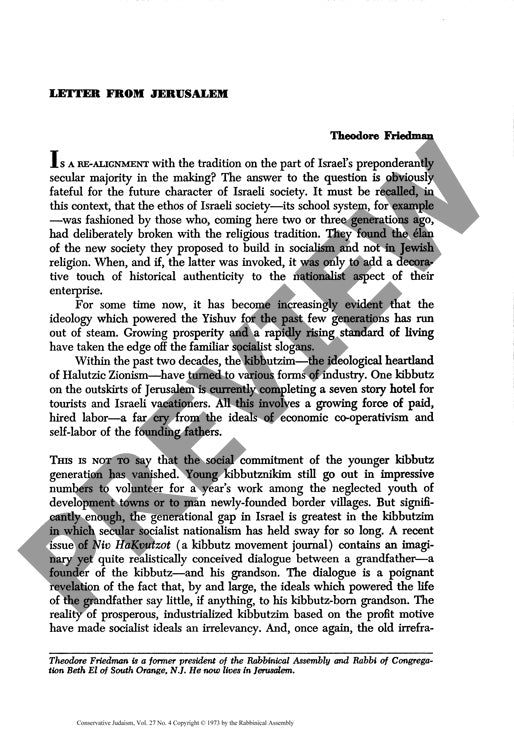Letter from Jerusalem
Couldn't load pickup availability
A profound spiritual transformation is reshaping Israeli society as its secular majority gravitates toward religious tradition, challenging decades of strict separation between nationalist and religious identities. Through qualitative analysis of cultural indicators - including kibbutz evolution, generational attitudes, and educational curricula - this research traces the erosion of secular socialist ideology that once defined the Zionist enterprise. Interview transcripts from young kibbutznikim, contemporary Israeli literature, and post-Six-Day War societal trends reveal a growing spiritual vacuum among younger generations who find themselves disconnected from their founders' purely secular ideals. The industrialization and economic success of kibbutzim have rendered their original socialist framework increasingly obsolete, while the Six-Day War catalyzed a renewed engagement with ancestral Jewish identity. Systematic changes are evident across secular institutions: traditional Jewish practices and texts have returned to educational curricula, rewritten secular liturgies have given way to traditional forms, and Jewish birth rates have risen markedly since 1967. These findings point to a fundamental ideological shift as Israel's secular majority forges a new synthesis between Jewish religious heritage and modern Israeli identity, potentially marking the end of the dominant secular nationalist paradigm.

More Information
-
Physical Description
-
Publication Information
Published 1973
ISBN
-
Publication Credits
Theodore Friedman

